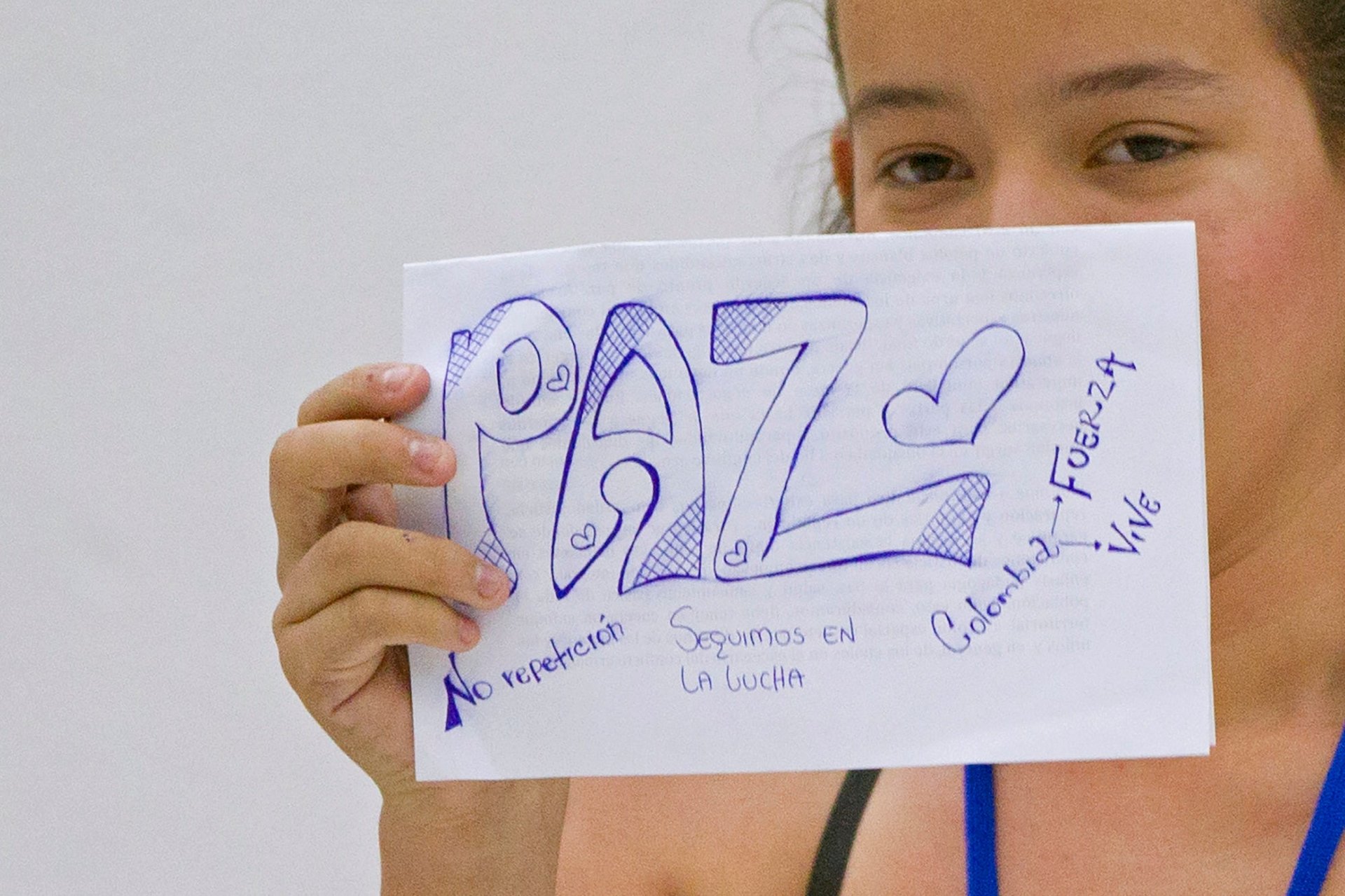Victims of Colombia’s conflict fight to be recognized as such
More than 6.5 million people have registered as victims of the armed conflict in Colombia. As peace talks in Havana between FARC rebels and the government seeks to address victims’ rights, a surprising issue has emerged.


More than 6.5 million people have registered as victims of the armed conflict in Colombia. As peace talks in Havana between FARC rebels and the government seeks to address victims’ rights, a surprising issue has emerged.
Who is recognized as a victim?
Last month, FARC published a blogpost on its website claiming that Clara Rojas, a Colombian politician, was not a victim. Rojas was kidnapped by the FARC in 2002 and was held captive for six years in the jungle, where she bore a child by one of the guards (whom she decided to have a consensual relationship with). Rojas was campaign manager for presidential candidate Ingrid Betancourt, whom she was accompanying at the time of the kidnapping.
“When Ingrid was captured by the FARC, the others were told they could leave. Clara said she had made the decision to stay with Ingrid. Anything that happened to Ingrid, would have to happen to her, too, she said”, reads the blogpost, purportedly written by “Diana” a guerrilla fighter who met Clara during her captivity.
The blogpost spurred a media outcry in Colombia, not only because it implied that Rojas had brought it upon herself to be kidnapped, but also because of passages in the guerrilla’s narrative that ridiculed Rojas and other hostages in her group.
“To use the private lives of the hostages as a political weapon is too vile,” wrote Colombian journalist Marta Ruiz in her opinion column in Semana, a prominent political weekly magazine.
Rojas’s story illustrates the difficulties of dealing with the subject of victims during peace negotiations. Thus far, rural development policy, political participation and illicit drugs have been points already discussed in Havana, while the topic of victims, the end of the armed conflict, and the implementation of the agreements remain pending in the agenda. The third of five delegations of victims who will give testimonies at the negotiation table arrived Thursday in Havana.
No talks with the FARC have ever gone so far as the ones held in Havana today. Furthermore, a weary Colombian population would like to see an end to a decades-long conflict. The current president, Juan Manuel Santos, was reelected this year, partly with the expectation that his government will bring an end to the conflict between the Colombian government and the FARC.
President Santos was in New York for the 69th Session of the UN General Assembly. One of the topics of his address, Sept. 23, was peace and preparing a post-conflict Colombia.
Meanwhile in Havana, negotiators continue to address the issue of the reparation of victims and continue meeting people identified as such. A total of 60 are expected to travel. That’s less than one out of 100,000 registered victims of the armed conflict.